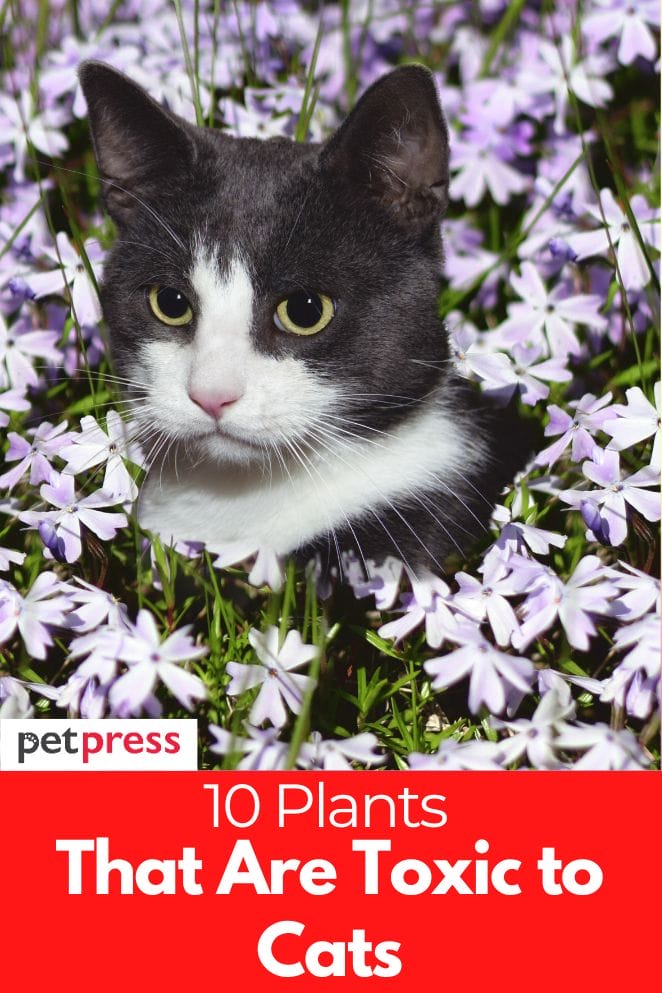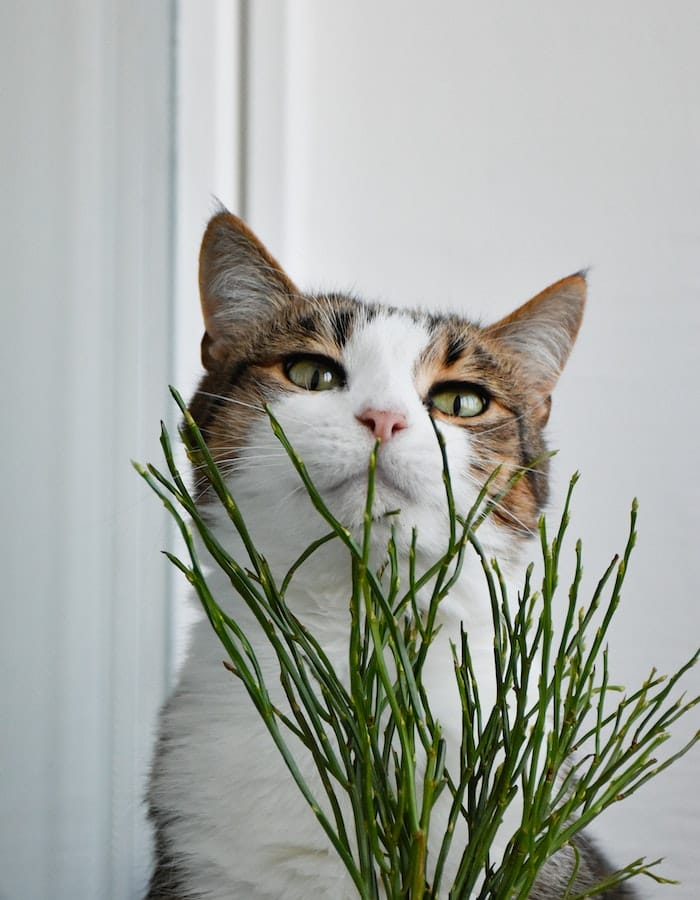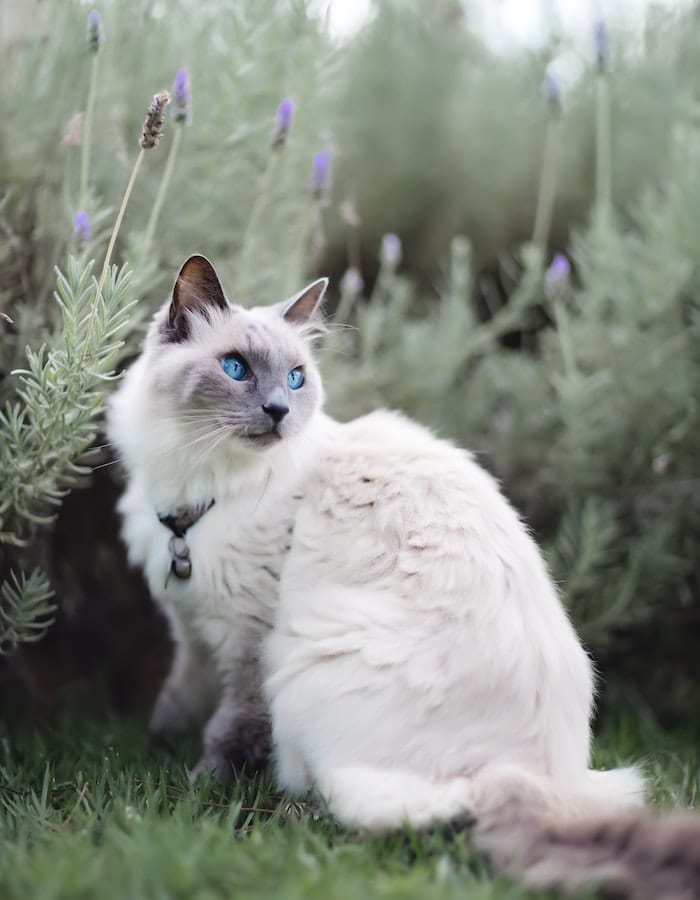
What plants are toxic to cats? This is a question that many cat owners have. The answer, unfortunately, is that there are quite a few plants that are toxic to cats.
In this blog post, we will discuss 10 of the most common plants that are poisonous to cats.
If you own a cat, it is important to be aware of these plants and keep them out of your home!
Why is it important to find out if a plant might be toxic?
Cats are curious creatures, and they often like to chew on plants. While most plants are harmless, some can be toxic to cats if ingested.
Symptoms of plant toxicity can range from mild (such as drooling or vomiting) to severe (such as difficulty breathing or seizure).
In some cases, toxicity can even be fatal. For this reason, it’s important to do your research before bringing any new plants into your home.
If you have a cat, be sure to choose plants that are non-toxic and safe for pets.
Keep an eye on your cat when they are around plants, and if you suspect that they have ingested a toxic plant, contact your veterinarian immediately.

What plants are toxic to cats?
Here are 10 plants that could bring harm to your cat.
Sago Palm
The sago palm is a common houseplant that is poisonous to cats. The plant contains cycasin, a toxic compound that can cause liver failure in cats.
Symptoms of sago palm poisoning include vomiting, diarrhea, lethargy, and jaundice.
Lilies
Lilies are a popular type of flower that is poisonous to cats. All parts of the lily plant contain toxins that can cause kidney failure in cats.
Symptoms of lily poisoning include vomiting, diarrhea, increased thirst, and lethargy.
Rhododendrons
Rhododendrons are a type of shrub that is poisonous to cats. The plant contains grayanotoxin, a toxic compound that can cause gastrointestinal upset and heart arrhythmias in cats.
Symptoms of rhododendron poisoning include vomiting, diarrhea, and difficulty breathing.
Oleander
Oleander is a common landscaping plant that is poisonous to cats. All parts of the plant contain cardiac glycosides, which can cause heart problems in cats.
Symptoms of oleander poisoning include vomiting, diarrhea, tremors, and seizures.
Azaleas
Azaleas are a type of shrub that is poisonous to cats. The plant contains grayanotoxin, a toxic compound that can cause gastrointestinal upset and heart arrhythmias in cats.
Symptoms of azalea poisoning include vomiting, diarrhea, and difficulty breathing.

Yew
The yew is a common landscaping plant that is poisonous to cats. The plant contains taxine, a toxic compound that can cause vomiting, diarrhea, tremors, and seizures in cats.
Symptoms of yew poisoning include vomiting, diarrhea, tremors, and seizures.
Amaryllis
The Amaryllis is a popular flowering bulb that is poisonous to cats. The plant contains lycorine, a toxic compound that can cause gastrointestinal upset and vomiting in cats.
Symptoms of amaryllis poisoning include vomiting, diarrhea, and lethargy.
Daffodil
Daffodils are a type of flower that is poisonous to cats. The plant contains lycorine, a toxic compound that can cause gastrointestinal upset and vomiting in cats.
Symptoms of daffodil poisoning include vomiting, diarrhea, and lethargy.
Chrysanthemum
Chrysanthemums are a popular type of flower that is poisonous to cats. The plant contains pyrethrins, a toxic compound that can cause gastrointestinal upset and nervous system issues in cats.
Symptoms of chrysanthemum poisoning include vomiting, diarrhea, tremors, and seizures.
English ivy
English ivy is a common houseplant that is poisonous to cats. The plant contains triterpenoid saponins, which can cause vomiting and diarrhea in cats.
Symptoms of English ivy poisoning include vomiting, diarrhea, and difficulty breathing.
What to do if your cat ingests a toxic plant?

If you suspect that your cat has ingested a toxic plant, contact your veterinarian immediately.
For information on plants that may be poisonous to cats, you can also call the ASPCA Animal Poison Control Center at (888) 426-4435.
Remember to always do your research before bringing any new plants into your home to ensure that they are safe for your furry friends.
Final thought
Although a number of plants are toxic to cats, there are many species that are safe for them to consume.
Cats are attracted to plants that are high in protein and fat, so it’s important to choose species that are not poisonous.
Some of the best options for cats include catnip, grass, and alfalfa.
Catnip is a member of the mint family and is known for its ability to make cats feel relaxed and happy.
The grass is an excellent source of fiber and helps keep cats’ digestive systems healthy.
Alfalfa is rich in nutrients and provides cats with a healthy source of energy.
When selecting plants for your cat, it’s important to do your research to make sure they are safe. With a little care, you can create a beautiful and cat-friendly garden that everyone can enjoy.
You can also name your cat with plant inspired cat names.
- Does Cat Litter Melt Ice? The Complete Guide to Winter Safety - January 30, 2026
- Happy Tail Dogs: Understanding This Common Canine Condition - January 29, 2026
- How Cold Can Outdoor Cats Handle? Feline Winter Safety - January 27, 2026


GIPHY App Key not set. Please check settings